Environment and natural resources
Forest policy and administration
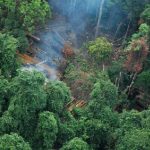
In the Greater Mekong Subregion there are a broad range of stakeholder perpectives and relationships that contribute to how forests are managed. In these nations, forests have diverse values to groups ranging from small landholders, large concessions holders, governments, the private sector and civil society. Illegal logging in ...
Forest cover
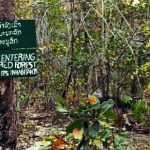
In 2015, the FAO’s Global Forest Resource Assessment estimated that the Greater Mekong Subregion had 88.4 million hectares of forest, equivalent to 46% of the region’s land area and shared by 237 million people.1. The WWF reports that between 1973 and 2009 the region lost ...
Forests and forestry
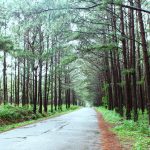
Forests and the forestry sector are linked to many aspects of the people and politics of the Lower Mekong Basin. In the current political and economical climates, the status of forests in the LMB is centered around governance, definitions, biodiversity, timber sector and production, forest ...
Climate change

The last 35 years have seen significant warming of the earth’s atmosphere. This is closely linked to human activity, in particular an increase in the industrial emission of greenhouse gases such as carbon dioxide and methane. Climate change has already resulted in an increased intensity ...
Clean Development Mechanism
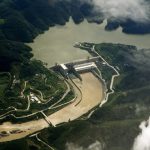
One of three mechanisms under the Kyoto Protocol, the Clean Development Mechanism (CDM) allows developing countries who have signed onto the UNFCCC Kyoto Protocol to pursue projects to reduce GHG emissions and earn certified emission reduction credits, which can then be sold to developed countries ...
Nationally Appropriate Mitigation Action
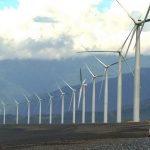
National Appropriate Mitigation Actions (NAMA) are voluntary, country-specific commitments to action that reduce emissions compared to ‘business as usual’ volumes.1 Recognizing that “economic and social development and poverty eradication are the first and overriding priorities of the developing country Parties,” the focus on NAMAs is ...
Mitigation
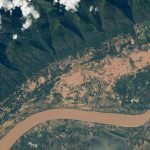
What is mitigation? The impacts of climate change are undeniable. Mitigation and adaptation actions must be taken to address these consequences. So, clarifying what mitigation and adaptation actually means is necessary. Flooding on the Mekong River floodplain, Thailand and Laos. Photo by NASA Johnson, Flickr. Uploaded ...
Adaptation
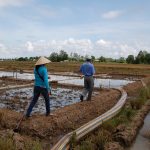
Climate change adaptation is understood as the actions undertaken by communities to cope with actual or predicted impacts of climate change.1 The actions may either reduce the level of harm or maximize the positive outcomes from climate change.2 Adaptaton differs from mitigation, which means taking action ...
Water resources
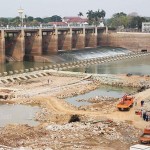
Introduction Water is the lifeblood of the Lower Mekong Countries. With economies and cultures inextricably connected to the Mekong River, built as they are on the production and consumption of rice and fish, people living in the Mekong countries are highly sensitive to changes in water. ...
Trends and challenges
![Source: Aqua Monitor, Donchyts et.al, (2016), "Earth's surface water change over the past 30 years", Nature Climate Change v.6, page 810-813. [screen shot taken 4/10/2016].](https://pp.opendevelopmentmekong.net/wp-content/uploads/2016/10/aqua-monitor-mekong-delta-150x150.png)
The management of water resources is becoming a critical issue in the region as competition for water increases and climate change takes hold. At the same time, the rapid conversion of forests to other uses has diminished the environmental capacity to regulate water at the ...

